Playgroup cultivates community connection
For Binjari and Rockhole communities, both located approximately 20 kilometres from the township of Katherine in the Northern Territory, the COVID-19 lockdowns in 2020 had a strong visual presence – roadblocks that literally closed off their communities.
The community closures were aimed to protect local residents, whose compromised health conditions made them vulnerable to the coronavirus.
Restrictions led to feelings of isolation and fear among residents, who regularly go off to visit extended families as a normal part of their life. Through their amazing resilience, the bleak situation turned to one of hope and happiness.
Allen Bower and Sarah Gold were the two early childhood educators assigned to continue Save the Children’s Play2Learn playgroups in Binjari and Rockhole during the community closures.
“Binjari and Rockhole went through quite a stressful time when the pandemic hit. We received emails from the Binjari CEO and Rockhole’s governing body, Kalano Association, on behalf of the families, requesting us to continue visiting as they felt it would be beneficial for all members of their families,” says Sarah.
So much more than a playgroup
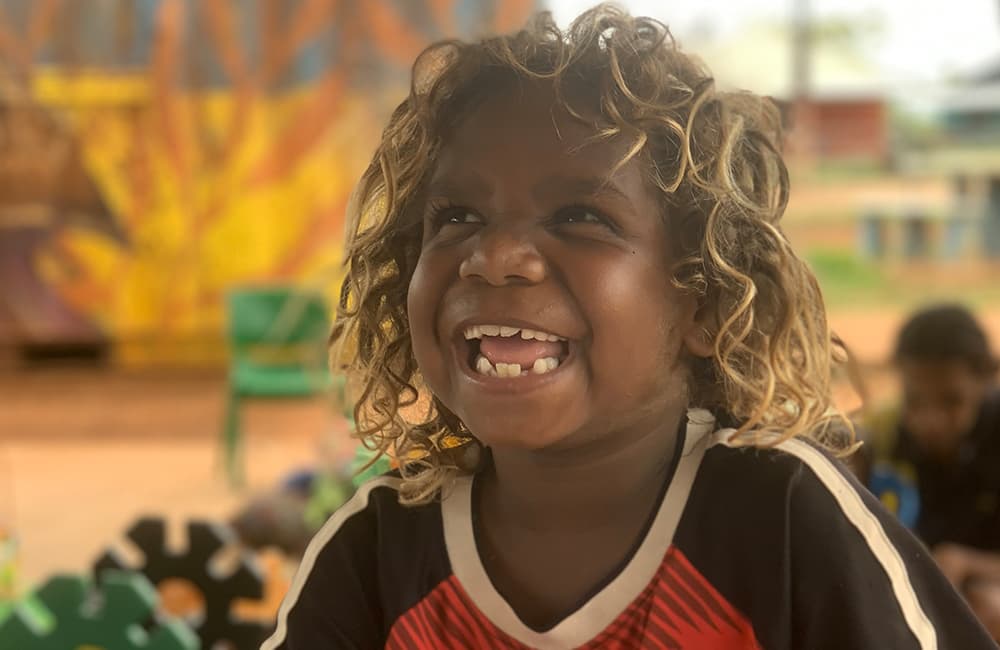.jpg.aspx)
Play2Learn brought happiness to the children through lockdown.
Save the Children has been providing free Play2Learn playgroups to the local communities and to Katherine for well over a decade now, preparing local children for school and supporting parents with skills through the learning through play program.
It also connects families to the wider community, encourages friendships, a sense of belonging and referral to other services that can look after their health, wellbeing and welfare.
During lockdown, Play2Learn played an even more important role to support the families.
“We were able to monitor the physical health, mental health and their wellbeing, as well as provide a much-needed distraction for the children with the continuation of regular learning sessions,” Sarah says.
While playgroups in Katherine were able to move online, Play2Learn at Binjari and Rockhole had to maintain their face-to-face group delivery, due to unreliable internet connection, no personal laptops, and people having to rely on purchasing extra credit for mobile phones from tight budgets.
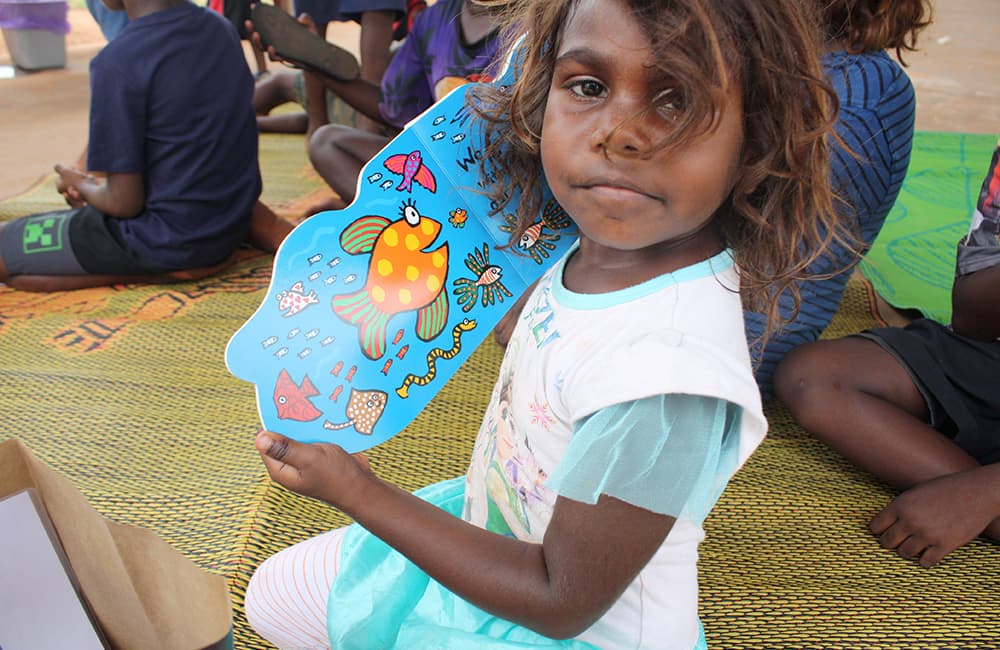
Children read books, some of which were written in Kriolby local ‘Binjari Buk Mob’ women with support from
the Indigenous Literacy Foundation.
Teaching handwashing proved habit-forming
The playgroups provided an opportunity to reinforce existing handwashing techniques.
Sarah says learning handwashing as part of a healthy life skill proved beneficial for the children, who continued this practice at home.
“We have coupled this with dental health care education providing toothbrushes and toothpaste and a dedicated time to clean teeth at the end of our provided meals time thanks to items donated by corporate partners, and blowing noses in line with the government health team education drives.”
“There has been a notable decrease in skin, nose, ear, and eye disorders in families since the improved personal hygiene regime has been implemented across both communities.”
Welcoming older children to help the little ones
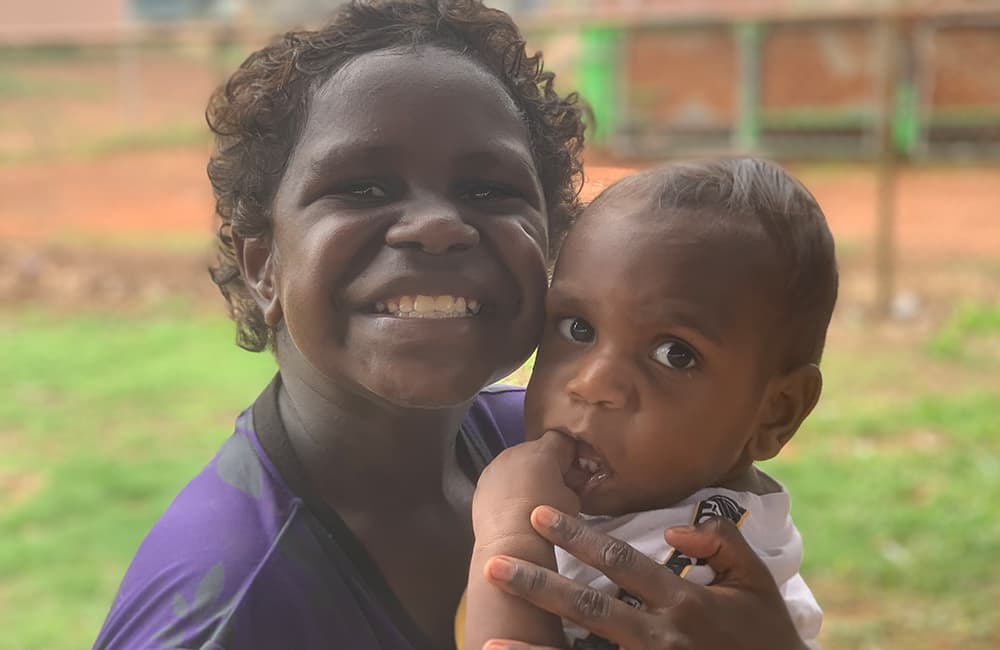 School-aged children shared their knowledge with little ones.
School-aged children shared their knowledge with little ones.
Play2Learn playgroups in Binjari and Rockhole also adapted to accommodate older children who were missing their normal school routine due to the community closures. This helped minimise complete disruption to their learning.
Many of these children had been attendees of Play2Learn prior to commencing school.
“Older children modelled and talked about school routine with the younger children, leading to role play and new games.”
“We encouraged them to reinforce their own learning and memory by helping others through demonstration and sharing of learned skills, sharing resources, playing sports, managing emotions, showing respect and care, and especially awareness of health and wellbeing,” Sarah says.
Dads get involved too
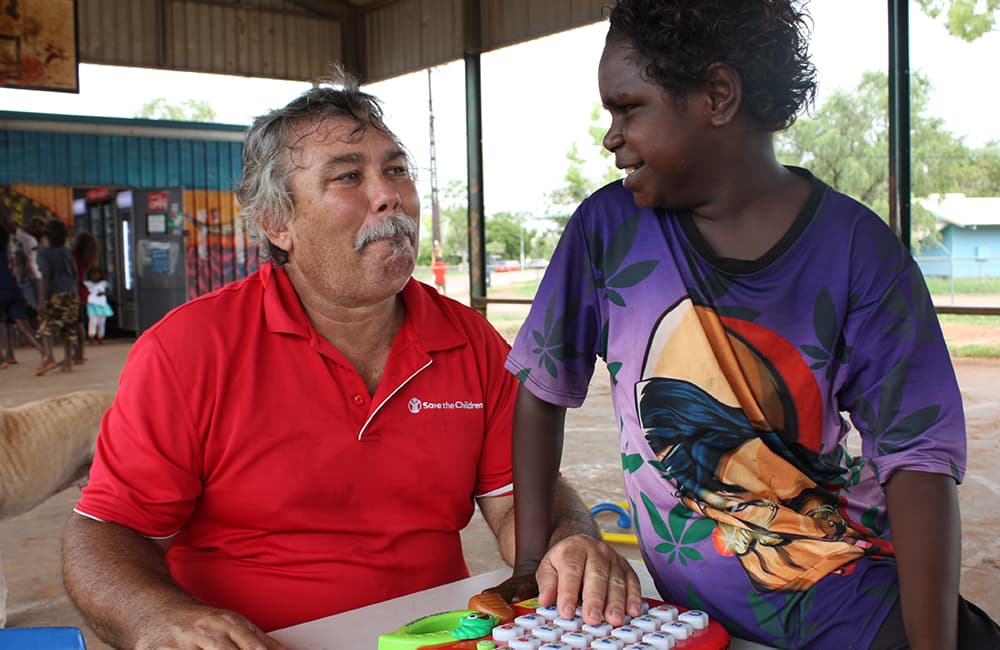
Allen, who himself grew up locally, helped the men engagein Play2Learn activities
that are traditionally seen as something the women do with the children.
With the travel restrictions and pausing of the Federally funded Community Development Program that engage the men, dads and other adult male family members started to come to the playgroup, encouraged by the children who wanted to show off what they do at Play2Learn.
Sarah says, “We received input and suggestions from them, and they often continued the group’s learning when we left for the day.”
For example, the men took the children fishing and bushwalking, as children expressed the wish to learn more of their own cultural history and environment.
Beyond the community closures last year and a shorter lockdown in 2021 due to new COVID-19 cases, Play2Learn continues to engage with the families at Binjari and Rockhole.
“I love the challenge of engaging all families and watching their enjoyment from participating in our activities. I love my job because of the relationships we build, not only with the children but the whole family and extended family,” says Allen.
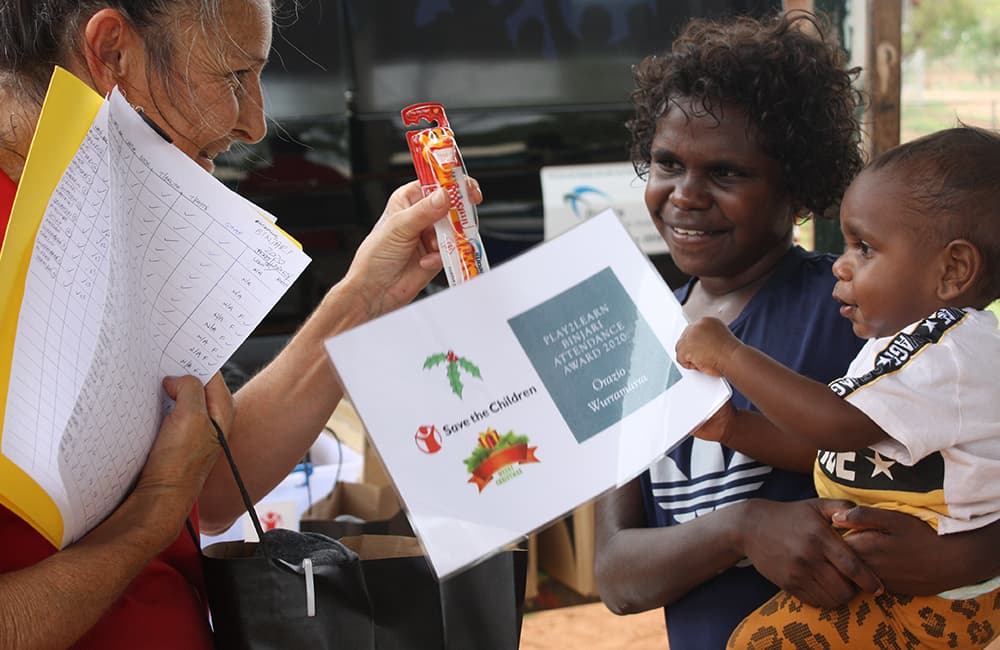
Sarah gives out care packs for the families with items donated
by Save the Children’s corporate partners.
Learn more about Play2Learn
https://www.savethechildren.org.au/our-work/our-programs/australia/play2learn
All photos: Emily Dienhoff / Save the Children